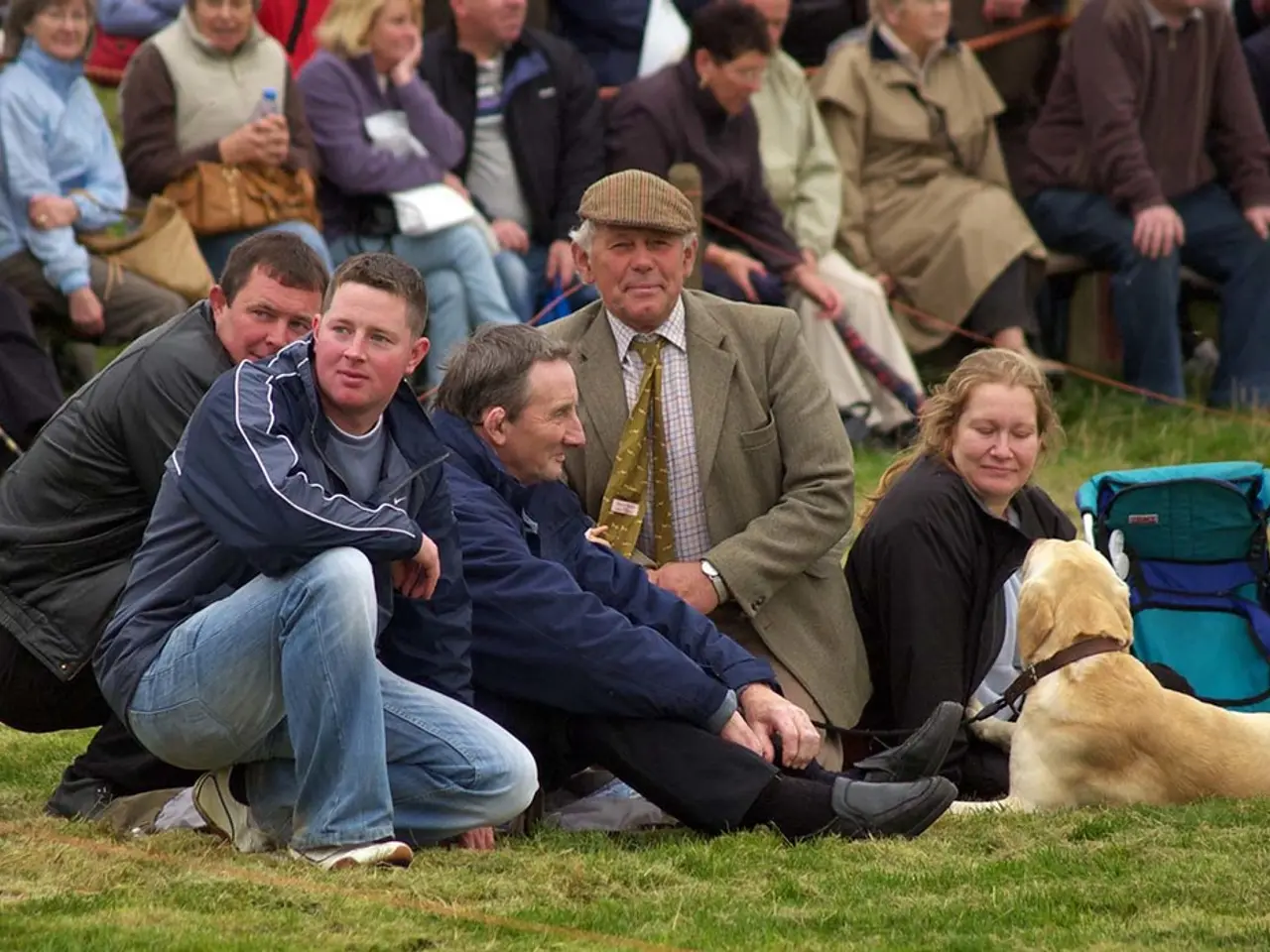Disappointed Family Man Expresses: "Public Recognition Level is at an All-Time Low"
===================================================================
In the picturesque town of Weilstetten, a local resident named Michael Ranis has been advocating for a dog run, aiming to provide a safe and secure space for dogs to socialise and play off-leash. However, the Balingen administration, which governs Weilstetten, does not view the creation of a dog run as a public task for a municipality of their size.
Michael Ranis, a dog owner with over 30 canine companions in his immediate vicinity, believes that the potential benefits of a dog run outweigh the costs. He has gathered over 50 signatures in support of his initiative and has even approached the local mayor, Wolfgang Schneider, to discuss the matter. Despite his efforts, the idea has yet to be implemented.
Ranis is disheartened by the city's inability to provide a dog run, especially considering the low cost associated with its establishment. He points to Milan, a city that boasts a beautiful and large dog park in the heart of its city centre, as an example that Weilstetten could emulate. Ranis desires a fenced-in field where he can let his dog off the leash to interact with other dogs, promoting their socialisation and well-being.
Dennis Schmidt, spokesman for the Balingen administration, explains that dog parks are typically set up in larger cities or urban centres due to their high population density and the associated need for pet management. Schmidt adds that the costs of fencing, maintenance, and other expenses make the creation of a dog run prohibitive for a town like Weilstetten.
Mayor Schneider agrees that support for a dog playground in the local council was limited and does not see its creation as a public task. The city of Balingen collects over 200,000 euros in dog tax each year, suggesting a significant number of dog owners in the area. However, the administration does not seem to appreciate the citizens' need for dedicated dog facilities.
Ranis expresses his dissatisfaction with the lack of appreciation for citizens' needs regarding dog facilities. He believes that if Milan can have dog parks, Weilstetten should be able to as well. The initiative raises questions about the cost-benefit analysis, public task, and citizen appreciation in the context of community projects like the proposed dog run.
A cost-benefit analysis would consider the initial expenses for land acquisition or allocation, construction costs, maintenance costs, and potential administrative costs against the benefits of improved quality of life for dog owners and their pets, increased community interaction, potential rise in local property values, reduced stress on existing green areas, and possibly lower incidents of dogs running loose or related nuisances.
From a public task perspective, providing recreational spaces, including dog runs, can be seen as part of the municipality’s duty to maintain public parks and promote inclusive public spaces. The initiative aligns with public health and safety goals, as designated dog runs can help manage pets in urban spaces, contributing to order and hygiene.
Citizens often appreciate initiatives that improve neighbourhood livability and provide dedicated spaces for activities like dog walking. Such amenities signal responsiveness of local leadership to community interests, fostering stronger community bonds and support for local governance, motivating further citizen engagement.
In summary, Michael Ranis's initiative for a dog run in Weilstetten can be viewed as a well-rounded community project that offers tangible benefits justifying the costs (cost-benefit analysis), fulfils a local government's role in providing public amenities (public task), and enhances citizen satisfaction and communal pride (citizen appreciation). If you need a detailed evaluation including local context, budget figures, or community feedback, that information would help deepen the analysis.
- Michael Ranis, being a resident of Weilstetten who is passionate about improving the region's lifestyle for pets and their owners, has launched an initiative to establish a dog run within the community to provide a safe and engaging home-and-garden space for pets.
- Despite the potential benefits of a dog run in terms of promoting pet socialization, enhancing the quality of life, and fostering community interaction, the Balingen administration has yet to see it as a public task, given the administration's perspective on cost-benefit analysis and the size of the municipality.




